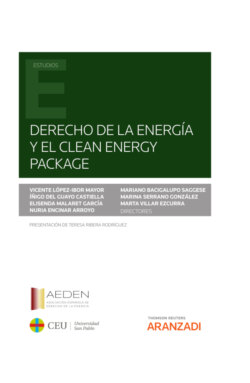Читать книгу Derecho de la energía y el clean energy package - Elisenda Malaret García - Страница 39
На сайте Литреса книга снята с продажи.
4. THE PRINCIPE OF PRUDENT, RATIONAL AND SUSTAINABLE USE OF NATURAL RESOURCES
ОглавлениеSustainability is a sophisticated concept which finds its culminations in the prudent and rational use of natural resources not only to ensure a reliable energy supply but also to combine it with the objectives of protecting the environment and the mitigation of climate change. This concept emerged in the Stockholm (1972)25 and Rio (1992)26 Declarations and later it was enshrined as a principle of international law through the Kyoto Protocol (1997), Article 2. But today, sustainability in the use of natural resources is certainly being jeopardised by the electrification and digitisation processes which are pushing for greater extraction, production, and consumption of electricity. If on one hand the energy transition pushes towards the choice of alternative sources and the study of new technologies to store electricity, on the other hand the use of fossil fuels is still high and the risks upon communities from the waste disposal and the decommissioning of energy infrastructures are high. For this reason, many countries in South America (Colombia, El Salvador, Costa Rica) and in Europe (Switzerland, Portugal) have constitutionalized the principle of the sustainable development almost as if it were a parameter to be respected for new environmental and energy legislation. Other countries have, instead, introduced energy sustainability indicators to assess how energy development affects sustainability27. From the use of fossil fuels to renewable energy percentages to the assessment of infrastructures and their suitability to prevent accidents and ensure a reliable and secure supply. The aim of these indicators has been to be able to help policy makers to calculate levels of sustainability in cities and nations and to identify the main problems to be solved. As in China, where the use of these indicators have helped politicians to change their energy policy towards a greater use of nuclear power plants at the expense of the previous massive use of coal-fired power plants with the aim of reducing emissions into the atmosphere28. It’s on this same path of the strengthening of scientific and technological indicators to assess sustainability in energy consumption and production that the United Nations in the most recent Report “The Sustainable Development Goals”29, regarding Goal 12 on sustainability and responsibility in energy consumption and production that invite States to rationalize energy resources. The report points out the duty to reduce subsidies to fossil fuels and to increase their taxation because of the significant environmental impact they generate on developing countries and their communities.
